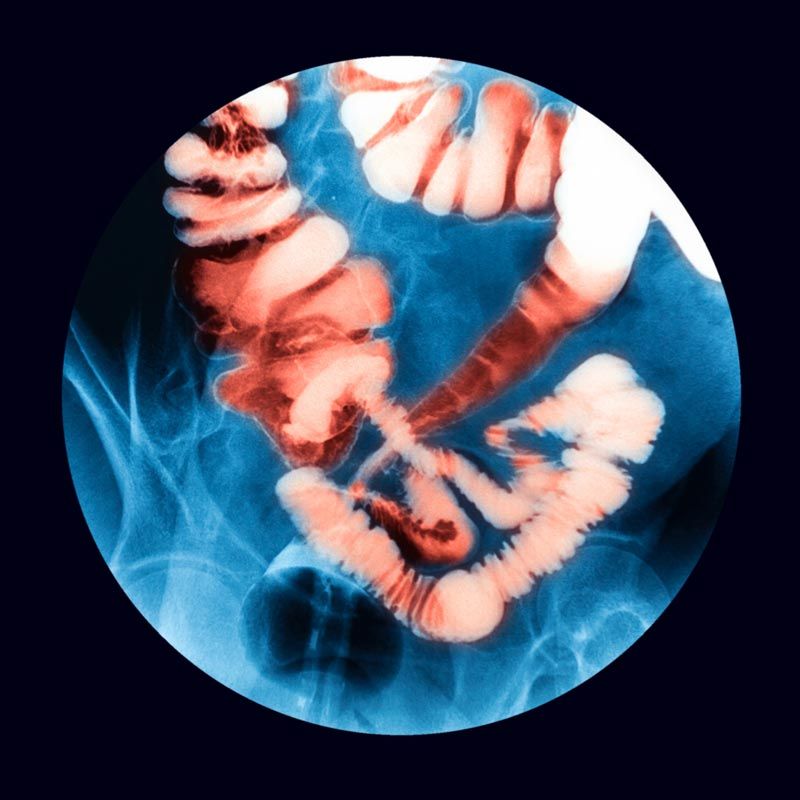Inflammatory Bowel Disease Remedies - Dr. Louis Granirer

"A holistic approach to managing IBD encompasses dietary changes, lifestyle adjustments, and a comprehensive nutrition protocol."
-Dr. Louis Granirer
NY Holistic Chiropractor
Natural IBD Remedy in Kingston Ulster County NY 12401
Inflammatory Bowel Disease (IBD) is a term that encompasses a group of chronic inflammatory conditions of the gastrointestinal (GI) tract. The two primary forms of IBD are Crohn's Disease and Ulcerative Colitis. These diseases can affect any part of the digestive system and are often characterized by periods of flare-ups and remission.
IBD has gained attention in recent years due to its increasing prevalence and the significant impact it has on the lives of those affected. Understanding IBD, its symptoms, causes, treatments, and the implications of leaving it untreated is crucial for effective management and improved quality of life.
Contact Dr. Louis Granirer
NY Holistic Chiropractor and Leading
Nutrition Response Testing Practitioner
For a Free Consultation
What is Inflammatory Bowel Disease?
IBD is an autoimmune condition where the immune system mistakenly attacks the gastrointestinal tract, leading to inflammation. In Crohn's Disease, the inflammation can occur anywhere in the digestive tract, from the mouth to the anus, while Ulcerative Colitis primarily affects the colon and rectum.
The exact cause of IBD remains unclear, but it is believed to result from a combination of genetic, environmental, and immunological factors.
Common Symptoms of IBD
The symptoms of IBD can vary widely depending on the type and severity of the condition. Common symptoms include:
- Abdominal Pain and Cramping: Patients often experience pain that can range from mild to severe, usually in the lower abdomen.
- Diarrhea: Frequent, watery stools are common in individuals with IBD, particularly in those with ulcerative colitis.
- Blood in Stool: This can manifest as bright red blood or darker, tarry stools, indicating bleeding in the intestines.
- Fatigue: Chronic inflammation can lead to significant fatigue and general malaise.
- Weight Loss: Many individuals suffer from unintended weight loss due to a reduced appetite or malabsorption of nutrients.
- Fever: During flare-ups, some patients may experience fevers as a response to inflammation.
- Joint Pain: Musculoskeletal symptoms may also occur, including arthritis or joint pain, which can be associated with IBD.
- Nausea and Vomiting: Some individuals may experience feelings of nausea, especially if food intake is not tolerated.
Common Causes of IBD
While the exact cause of IBD is still not fully understood, several factors are implicated in the development of the disease:
- Genetics: A family history of IBD increases the risk, suggesting a genetic component to the condition. Certain gene mutations are associated with the immune response in the gut.
- Immune System Dysfunction: IBD may result from an abnormal immune response. The immune system may react improperly to gut bacteria, resulting in chronic inflammation.
- Environmental Factors: Factors such as diet, stress, and exposure to certain infections or pollutants may contribute to the onset or exacerbation of IBD. Additionally, living in urban areas has been associated with higher rates of IBD.
- Lifestyle Factors: Smoking has been identified as a contributing factor, particularly for Crohn's Disease. Conversely, quitting smoking is linked to an increased risk of developing ulcerative colitis.
- Microbiome Imbalance: Alterations in the gut microbiome—the complex community of microorganisms residing in the digestive tract—are believed to play a role in the development of IBD by influencing the immune system.

Traditional Medical Treatments
Traditional medical treatments for IBD typically focus on reducing inflammation and managing symptoms.
Common treatments include:
- Anti-Inflammatory Medications: Medications such as aminosalicylates (e.g., mesalamine) are commonly prescribed to reduce inflammation in the intestines.
- Corticosteroids: These are used during flare-ups to quickly reduce inflammation, but they are not recommended for long-term use due to potential side effects.
- Immunosuppressants: Drugs such as azathioprine and methotrexate can help suppress the immune response to reduce inflammation over the long term.
- Biologics: Advanced treatments, including biologic therapies (e.g., infliximab, adalimumab), target specific pathways in the immune system to provide relief from symptoms and induce remission.
- Surgery: In severe cases, surgical options may be considered to remove diseased sections of the intestine or to bypass areas that are severely affected by inflammation.
Dr. Louis Granirer's Natural Remedies
A holistic approach to managing IBD encompasses dietary changes, lifestyle adjustments, and a comprehensive nutrition protocol.
- Nutritional Muscle Testing: Dr. Granirer uses muscle testing to identify individual food sensitivities and triggers that may exacerbate symptoms and cause inflammation in the gut. Personalized dietary changes can help reduce inflammation significantly and improve gut health. Nutritional muscle testing often involves eliminating certain foods, supporting the microbiome, balancing microbial flora, correcting deficiencies, and detoxifying the body. The goal of nutritional muscle testing is to identify the root causes of inflammation and underlying imbalances in the body. Nutritional supplements such as herbs, vitamins, homeopathics, neutraceuticals, and enzymes may help balance and support the body.
What Can Happen If IBD Is Left Untreated
Leaving IBD untreated can have severe consequences for overall health and well-being. Chronic inflammation can lead to complications such as strictures, which narrow the intestines and can cause blockages. There is also a risk of developing abscesses (pockets of infection), fistulas (abnormal connections between the intestine and other organs), and malnutrition due to malabsorption of nutrients. Long-term untreated IBD increases the risk of colorectal cancer, making regular monitoring and treatment crucial for reducing health risks.
Contact Holistic Chiropractor Dr. Louis Granirer for a Free Consultation
Inflammatory Bowel Disease is a multifaceted condition requiring a comprehensive management approach. Understanding IBD, recognizing symptoms, and identifying causes can empower individuals to seek effective treatments. While traditional medicine provides several options for managing the condition, holistic approaches, including dietary adjustments and lifestyle changes, can complement these treatments and improve one's quality of life.
If you suspect you may have symptoms of IBD and have been diagnosed by a medical practitioner or wish to explore supportive options, consulting with a healthcare professional is a critical step in achieving better health.
Contact Dr. Louis Granirer today.
Additional References
- Should Everyone Take A Probiotic? - Dr. Louis Granirer
- Inflammatory Bowel Disease - Mayo Clinic




